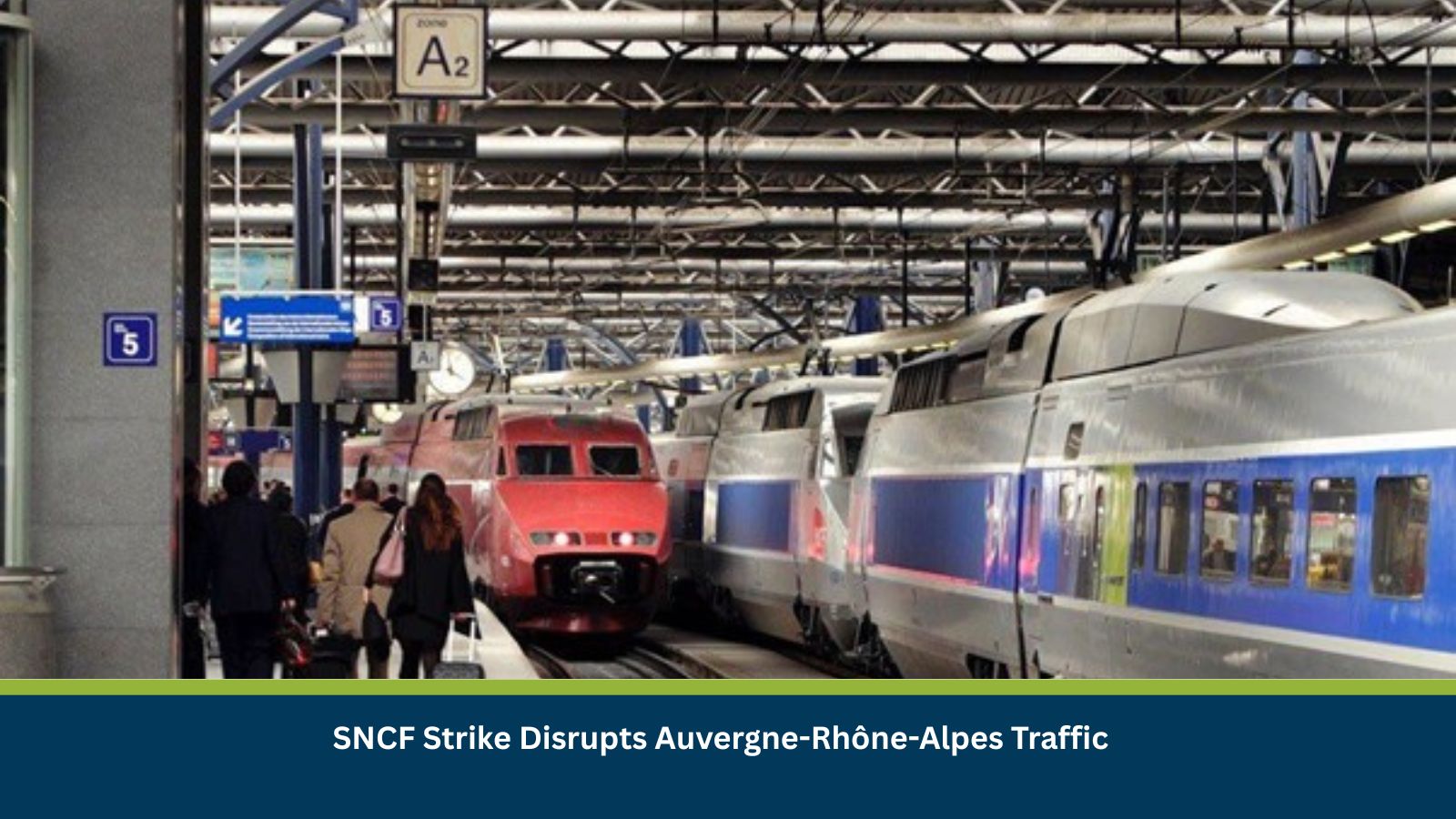What is Risk Analysis in the Context of Travel Risks
Risk analysis concerning a travel-related event like a public transport strike involves assessing the potential for widespread disruption and its cascading effects on a regional economy and daily life. In France, SNCF strikes are a recurring form of industrial action, making the pattern of disruption predictable. This analysis focuses on forecasting the severity of the strike’s impact on regional mobility, business continuity, and public safety, enabling proactive measures to mitigate the anticipated challenges.
Executive Summary
- Date of Incident: 24 September 2025
- Location: Auvergne-Rhône-Alpes, France
- Risk Category: Travel Risks
- Severity Score: 4/5
- Confidence Level: 95%
A regional SNCF strike in Auvergne-Rhône-Alpes on September 24, 2025, is anticipated to cause significant disruption to TER train services. Historical analysis of similar transport strikes in the region suggests a likely duration window of 24-48 hours, encompassing the primary day of action and potential residual delays. This event will result in widespread travel impedance, impacting commuter productivity and requiring alternative transportation arrangements. While direct safety risks remain low, the cascading effects on road traffic and related logistics are notable. The overall severity is assessed as high due to the critical nature of rail transport for regional mobility, justifying a severity score of 4/5. Confidence in this forecast is exceptionally high, at 95%, given the event’s pre-announced nature and specific date.
Current Updates
SNCF strike action is confirmed for Wednesday, September 24, 2025, specifically targeting TER train services across the Auvergne-Rhône-Alpes region. This will lead to significant disruptions, including cancellations and delays, for regional rail passengers.
Known Hotspots and Sensitive Areas
The strike will severely impact major transport hubs in the Auvergne-Rhône-Alpes region, particularly in and around Lyon. The main hotspots include key railway stations such as Lyon Perrache and Lyon Part-Dieu, as well as stations in Grenoble, Saint-Étienne, Chambéry, and Bourg-en-Bresse. These areas will experience a high concentration of stranded or delayed passengers. The broader Lyon metropolitan area is consistently sensitive to transport disruptions, as the strike will force a significant number of commuters onto the road network, creating severe congestion.
Impact on Transportation and Services
TER train services will be severely disrupted, with numerous cancellations and delays expected across the regional network. This will force a large number of commuters to seek alternative transport, primarily by car, which will lead to significant road congestion. Historically, this has resulted in traffic jams on major arteries into and out of cities like Lyon. The increased road traffic will also cause delays for local delivery services, affecting last-mile logistics and local supply chains. Businesses relying on regional transport for staff or freight will face operational challenges, including employee absenteeism and productivity losses.
Recommended Actions
- Activate Flexible Work Policy: Mandate remote work for all non-essential staff in the affected region. For essential personnel, arrange alternative transport such as carpooling, shuttles, or taxi vouchers.
- Proactive Communication: Issue immediate internal advisories to employees and proactively inform regional clients and partners about potential service delivery delays.
- Review Logistics & Supply Chains: Operations and logistics teams should assess critical shipments and develop contingency plans, including rerouting via road or adjusting delivery schedules to minimize disruption.
- Establish a Centralized Response Hub: Create a cross-functional incident response team to monitor the strike, centralize feedback, and ensure rapid decision-making.
Multidimensional Impact
The SNCF strike will have a direct collateral impact on the ongoing “Building Evacuated Due to Risk of Collapse in Villeurbanne” incident. Residents of the evacuated building will face severe difficulties in finding alternative transport and accommodation due to the widespread TER disruptions. Furthermore, emergency services and relief efforts in Villeurbanne could be delayed and hampered by the increased road congestion, creating a compounding effect that makes an already critical situation more complex and prolongs recovery efforts for those affected.
Emergency Contacts
- National Emergency: 112
- Official Channels:
Final Thoughts
The SNCF strike is a predictable event that, while unlikely to cause direct harm, will significantly disrupt daily life and economic activity across the Auvergne-Rhône-Alpes region. The high confidence score in the forecast allows businesses and individuals ample time for preparation. The main challenge will be the knock-on effect on road traffic and the compounding of other local events. A well-executed contingency plan and transparent communication are crucial for minimizing this disruption. This incident underscores the importance of a robust business continuity strategy that accounts for localized, yet high-impact, events.Stay ahead of operational risks with real-time alerts, scenario modeling, and expert advisories with datasurfr’s Predict. Start your 14-day free trial of Datasurfr’s Risk Intelligence Platform today.






